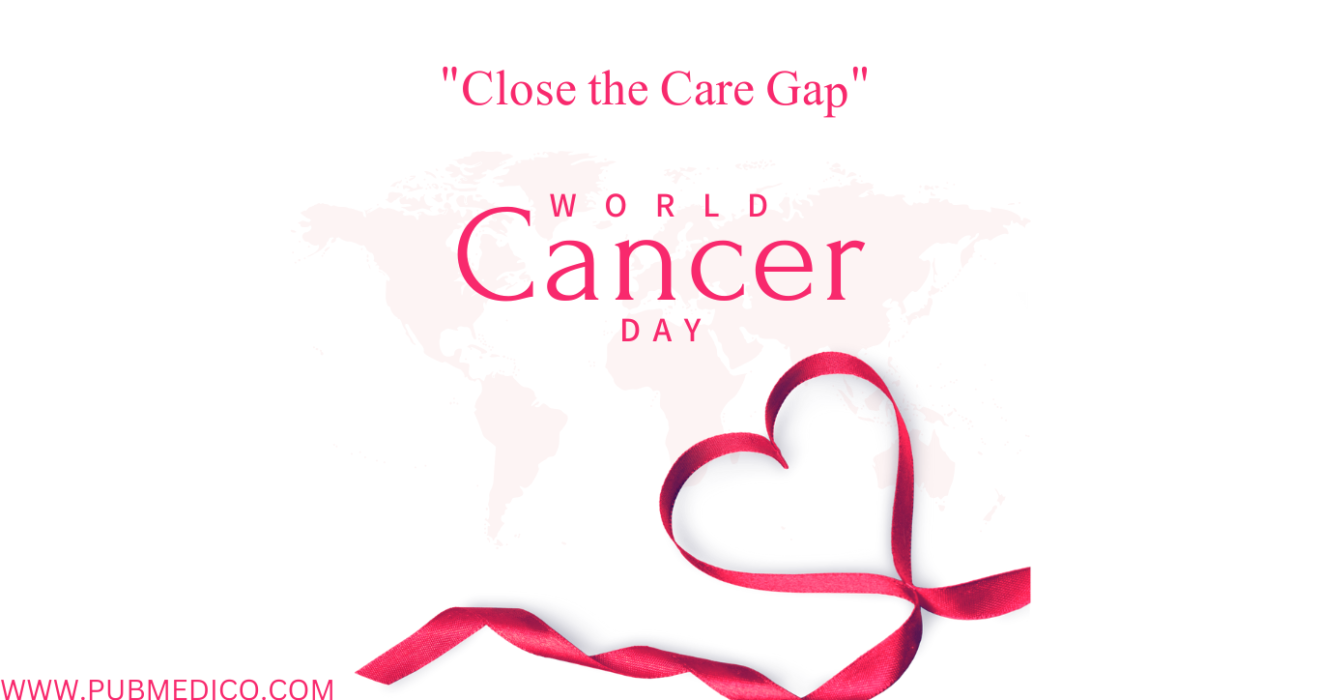World Cancer Day 2025: “Close the Care Gap”
World Cancer Day 2025: “Close the Care Gap”
Every year on February 4th, the world comes together to observe World Cancer Day, a global initiative led by the Union for International Cancer Control (UICC) to raise awareness about cancer, encourage prevention, early detection, and treatment, and advocate for policies that help in the fight against cancer. The 2024 year’s theme, “Close the Care Gap,” highlights the need to eliminate disparities in cancer treatment and ensure that everyone.
The Global Impact of Cancer
Cancer is one of the leading causes of death worldwide, affecting millions of people each year. According to the World Health Organization (WHO):
- Over 9.7 million deaths were caused by cancer in 2022.
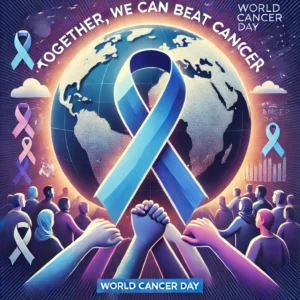
- The most common types of cancer include lung cancer, breast cancer, colorectal cancer, prostate cancer, and stomach cancer.
- Nearly one in six deaths globally is due to cancer.
While advancements in medical science have improved survival rates, cancer continues to be a significant global challenge. Early detection, lifestyle changes, and access to quality healthcare are crucial to reducing mortality rates.
The Importance of Cancer Awareness
Why Early Detection Matters
Many types of cancer are highly treatable if detected early. For example, breast cancer survival rates exceed 90% when diagnosed at an early stage. Unfortunately, many people delay screenings due to fear, misinformation, or lack of awareness, leading to more advanced and harder-to-treat cases.
Common Myths About Cancer
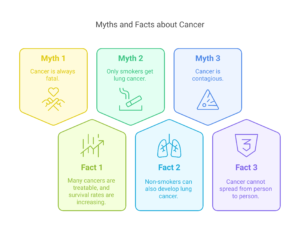
The Role of Education in Cancer Prevention
Educating people about healthy lifestyles, risk factors, and the importance of screenings can save lives. Schools, workplaces, and community programs should integrate cancer awareness campaigns to promote a culture of health and prevention.
Risk Factors and Prevention Strategies
Cancer can develop due to a combination of genetic and environmental factors. However, lifestyle choices play a significant role in preventing cancer.
Common Risk Factors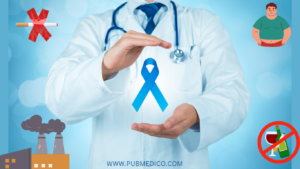
- Smoking – Responsible for nearly 22% of cancer deaths.
- Obesity and poor diet – Linked to cancers like colorectal and breast cancer.
- Alcohol consumption – Increases the risk of liver, breast, and throat cancer.
- Lack of physical activity – Contributes to obesity and increased cancer risk.
- Environmental factors – Exposure to pollutants, radiation, and harmful chemicals.
How to Reduce Your Cancer Risk
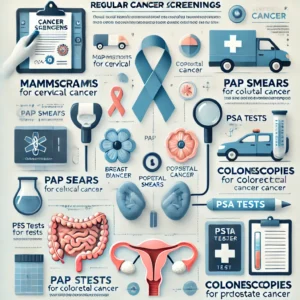
- Quit smoking – One of the most effective ways to reduce cancer risk.
Adopt a balanced diet – Include more fruits, vegetables, and whole grains.- Exercise regularly – At least 30 minutes of moderate activity per day.
- Limit alcohol intake – Drink in moderation or avoid it altogether.
- Protect yourself from the sun – Use sunscreen and avoid prolonged UV exposure.
- Get vaccinated – HPV and Hepatitis B vaccines help prevent cervical and liver cancer.
The Importance of Regular Screenings
Early detection saves lives! Regular screenings for breast cancer, cervical cancer, colorectal cancer, and prostate cancer can significantly increase survival rates.
Advances in Cancer Treatment and Research
Cancer treatment has come a long way, with new breakthroughs improving survival rates and quality of life for patients. The field of oncology continues to evolve, bringing hope to millions of patients worldwide.
Breakthroughs in Cancer Treatment
- Immunotherapy – This revolutionary treatment helps the body’s immune system fight cancer more effectively. Unlike chemotherapy, which targets all rapidly dividing cells, immunotherapy focuses specifically on cancer cells, reducing side effects.
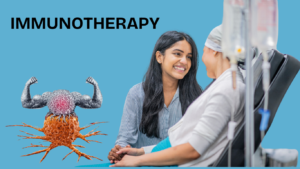
- Targeted Therapy – Scientists have developed drugs that attack specific genetic mutations in cancer cells. This approach is especially effective for cancers like leukemia, breast cancer, and lung cancer.
- Precision Medicine – Personalized treatment based on a patient’s genetic makeup ensures the most effective therapies with minimal side effects.
- CAR-T Cell Therapy – A promising treatment for blood cancers like leukemia and lymphoma, this therapy modifies a patient’s T-cells to target and destroy cancer cells.
- Minimally Invasive Surgery & Robotics – Advanced surgical techniques allow for less pain, quicker recovery, and better outcomes for cancer patients.
The Future of Cancer Research
- Artificial Intelligence (AI) in Cancer Detection – AI-powered tools are improving early cancer detection, helping radiologists spot tumors with greater accuracy.
- Cancer Vaccines – Research is ongoing to develop preventive and therapeutic vaccines for various cancers.
- Liquid Biopsies – A non-invasive blood test that can detect cancer at an early stage, making screening easier and more accessible.
While there’s still a long way to go, the future of cancer treatment looks promising, with ongoing research focused on making cancer treatments more effective and accessible.
Stories of Hope and Survival
Actress Marlyne Barrett, known for her role in “Chicago Med,” was diagnosed with uterine and ovarian cancer in July 2022. Undergoing 30 rounds of chemotherapy and major surgery, Barrett remained positive and continued working throughout her treatment. Now in complete remission, she reflects on her experience with gratitude and aims to help others find joy and purpose in their battles against cancer
How You Can Participate in World Cancer Day
Everyone has a role to play in the fight against cancer. Here’s how you can make a difference:
Events and Campaigns Around the World
Many organizations host walkathons, fundraisers, and awareness programs on World Cancer Day. Participating in these events helps raise funds for cancer research and patient support.
How to Spread Awareness on Social Media
- Use hashtags like #WorldCancerDay, #CloseTheCareGap, and #CancerAwareness to share important messages.
- Post informative articles, survivor stories, and prevention tips.
- Encourage friends and family to get regular screenings and live a healthier lifestyle.
Volunteering and Fundraising Opportunities
- Volunteer at local cancer hospitals or NGOs.
- Organize fundraising events to support cancer research.
- Donate to reputable cancer organizations to help those in need.
The Power of a Healthy Lifestyle in Cancer Prevention
Adopting a healthy lifestyle can significantly lower your cancer risk.
The Role of Diet and Exercise
- Eat a balanced diet – Focus on fruits, vegetables, lean proteins, and whole grains.
- Stay physically active – Aim for 150 minutes of exercise per week.
- Maintain a healthy weight – Obesity increases the risk of various cancers.
The Impact of Mental Health on Cancer Prevention
- Chronic stress and anxiety weaken the immune system, increasing cancer risk.
- Practices like meditation, yoga, and mindfulness can improve mental well-being.
Avoiding Environmental Carcinogens
- Reduce exposure to harmful chemicals and pollutants.
- Use non-toxic household products.
- Limit radiation exposure from excessive X-rays and UV rays.
Early detection is key to improving survival rates. Here’s what you need to know:
Common Screening Tests for Different Cancers
| Cancer Type | Screening Test | Recommended Age |
| Breast Cancer | Mammogram | 40+ years (earlier if high risk) |
| Cervical Cancer | Pap Smear & HPV Test | 21+ years |
| Colorectal Cancer | Colonoscopy | 45+ years |
| Prostate Cancer | PSA Test | 50+ years (earlier for high risk) |
| Lung Cancer | Low-dose CT scan | For heavy smokers (55+ years) |
When and How Often to Get Screened
- Follow doctor recommendations based on personal and family history.
- Get screenings as per guidelines to catch cancer in its earliest stages.
Inspirational Stories of Cancer Fighters
Many cancer fighters beat the odds through determination, access to treatment, and support from loved ones. Their stories motivate and inspire others to never lose hope.
The Future of Cancer Awareness and Prevention
The fight against cancer is far from over. With ongoing research, technological advancements, and global awareness campaigns, the future holds hope for better treatments, early detection, and even cancer eradication.
Conclusion: A Call to Action
Cancer is a battle that affects millions worldwide. World Cancer Day serves as a reminder that we all have a part to play—whether through raising awareness, supporting those affected, or making healthier lifestyle choices. Every effort counts!
MORE DETAIL Contact Us
FAQs About World Cancer Day
- What is the purpose of World Cancer Day?
World Cancer Day aims to raise awareness, promote early detection, and advocate for better cancer care worldwide.
- How can I contribute to cancer awareness?
You can participate by sharing information, joining awareness events, donating to cancer organizations, or volunteering.
- What are the most common types of cancer?
The most common cancers include lung, breast, colorectal, prostate, and stomach cancer.
- How can I reduce my risk of developing cancer?
By maintaining a healthy lifestyle, avoiding tobacco and alcohol, staying physically active, and getting regular screenings.
- What are the latest advancements in cancer treatment?
Some of the latest treatments include immunotherapy, targeted therapy, CAR-T cell therapy, and precision medicine.


